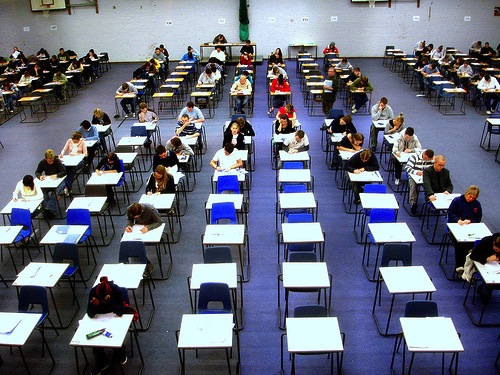I used many of these memory hacks when I was a teacher. And I wrote a post on MEMORY a while ago. But here Jennifer Dennis who has done a lot of research on this very topic, puts them all together. Share with anyone you know who is the mother, grandmother, auntie of a student. OK, share with everyone.

Students Need to Know This
You’ve studied hard for weeks, stayed up all night to review, and suddenly cannot remember the first question on your exam. We’ve all suffered from this situation before. Research claims that 63% of Irish students felt anxious about exams despite being well prepared, while 46% of students report to feeling tense during a review. Although studying is a vital part of a student’s life, the routine can become rather boring and ineffective.
Thankfully, there are study hacks that you can adapt to improve your memory, enhance your review, and score high on your tests. Check out these memory hacks to help you study smarter, not harder.
Sweat It Out Before You Study
According to research by Dr. Chuck Hillman of the University of Illinois, studies show that 20 minutes of physical exercise can help boost brainpower and improve your focus. Every muscle you move will send hormones straight to your brain. When mixed with a chemical called brain-derived neurotrophic factor, this plays a role in the brain’s growth, focus, and mood regulation. In addition, exercise also releases several hormones that will improve your mood, motivation, and learning.
Take A Break
Students often believe that the more hours they put into their studying, the more prepared they will become. However, studying smarter means taking 5-minute breaks after every 25 minutes. This will help promote a better understanding of information as your brain needs time to make sense of the lesson. Regular study breaks will also help relieve fatigue and motivation to continue studying without feeling burned out.
Make Some Noise
Another report conducted at the University of Irvine claims that music stimulates the brain and improves memory. In fact, the study claims the scores on memory tests of patients with Alzheimer’s improved when they listened to classical music. Students will find that patterned music can help them focus clearly on the topic and encourage a better mood for learning. Music can help shift levels of energy, as playing upbeat music can boost lethargic minds while reflective music helps individuals stay attentive and calm. Consider classical music like Bach, Mozart, or Handel.
Build Mental Maps
The ability to connect two details is an easy way to retain information as well as fuel intelligence and creativity. Steve Jobs once said, “Creativity is connecting things. Creative people will never have the answer if you ask them how they did something. Rather they just saw a new perspective.” Using mind maps will help you connect ideas with an overview of multiple paths. Once you have mastered how to map, you will master the material.

Test Yourself
Testing yourself on the material is one of the oldest, yet effective tricks to improve memorisation. This hack helps you identify what you already know, slightly remember, and what you need to work on. As a result, you can decrease the amount of time spent on memorising the same information and study the information you need to improve on.
In the end, it won’t matter what technique you use if your brain isn’t receptive. Be sure to keep your mind and body healthy, well rested and follow these hacks. Don’t forget to see how well your results compare when you study smarter, not harder.




Good tips. Thanks for sharing. Have a good bank holiday weekend x
Great advice! My youngest son used to study with music on and I never understood how he could read and learn with music on. He graduated from the Naval Academy top of his class! Guess he knew more than I did how to study.
You and me both. I always thought silence was the only way. In recent years I learned otherwise.